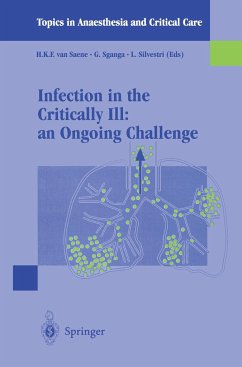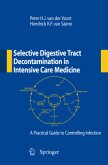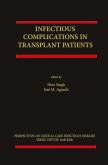Infections contracted by patients constitute an important factor in the manage ment of any hospital unit. For patients with weakened resistance due to trauma, after surgery and in intensive care, infection-related complications have a nega tive impact on care quality indicators, specifically in terms of protracted hospi talisation time, increased costs from complications and extended hospitalisation, and increased mortality rate. Effective strategies to prevent and treat infections are a priority in optimising the cost-effectiveness of care. Infection control, diag nostics and targeted antibiotic therapy require an integrated epidemiological, microbiological and clinical approach. This is indispensable for critically ill patients, especially when the processes of infection and sepsis are supported by micro-organisms which are multidrug-resistant and difficult to root out. The importance of this subject has been demonstrated by a European obser vational study on the prevalence of hospital infections in patients under intensive care. In this study, the prevalence of infections contracted in a "high-risk" envi ronment was 21 %, while other studies have observed that the incidence of pneu monia in patients undergoing artificial ventilation varied between 8% and 54%, with a median of 24%. These figures alone are enough to show the clinical impor tance of the infective process and the need for continuous interdisciplinary updating and exchanges of experience.
Hinweis: Dieser Artikel kann nur an eine deutsche Lieferadresse ausgeliefert werden.
Hinweis: Dieser Artikel kann nur an eine deutsche Lieferadresse ausgeliefert werden.








